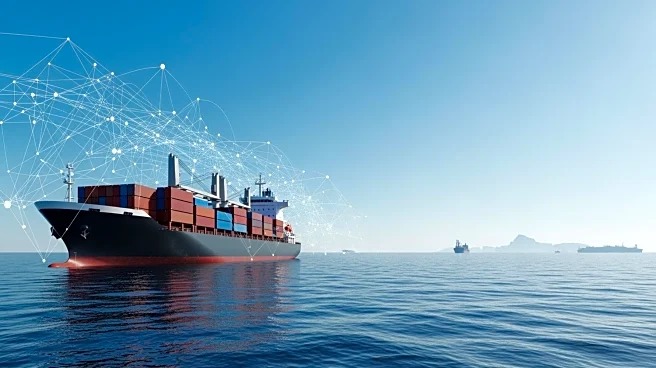What's Happening?
Shipowners are taking strategic steps to avoid new port fees imposed by the U.S. and China, targeting ships built, owned, or operated by companies in these countries. Pacific Basin Shipping is expanding its operations in Singapore and transferring vessels
to the Singapore registry to mitigate exposure. Other companies, like Global Ship Lease and Seaspan, are restructuring their fleets and corporate setups to navigate these fees. The cruise sector is also affected, with ships like Norwegian Cruise Line's Riviera diverting to avoid hefty fees.
Why It's Important?
These port fees could significantly impact global shipping operations, leading to increased freight rates and market volatility. Companies are restructuring to maintain competitiveness and avoid financial penalties, which may alter global shipping routes and logistics strategies. The changes could affect trade flows between the U.S. and China, influencing global supply chains and economic relations. The cruise industry may also face challenges, potentially affecting tourism and international travel.
What's Next?
Shipowners will likely continue to seek clarity on fee regulations and ownership rules, potentially leading to further corporate restructuring. The industry may lobby for policy changes or negotiate exemptions to minimize disruptions. Stakeholders will monitor the impact on freight rates and adjust strategies accordingly. The situation may prompt broader discussions on international trade policies and maritime regulations.
















